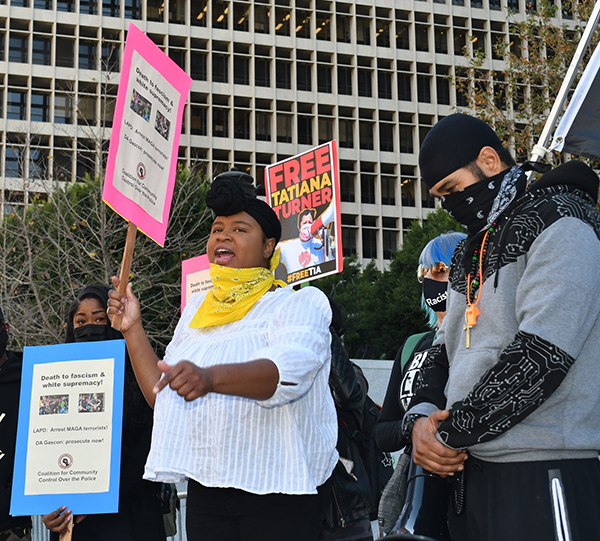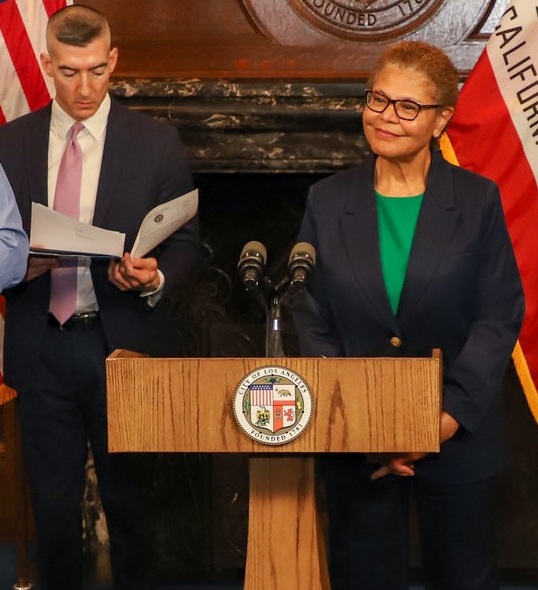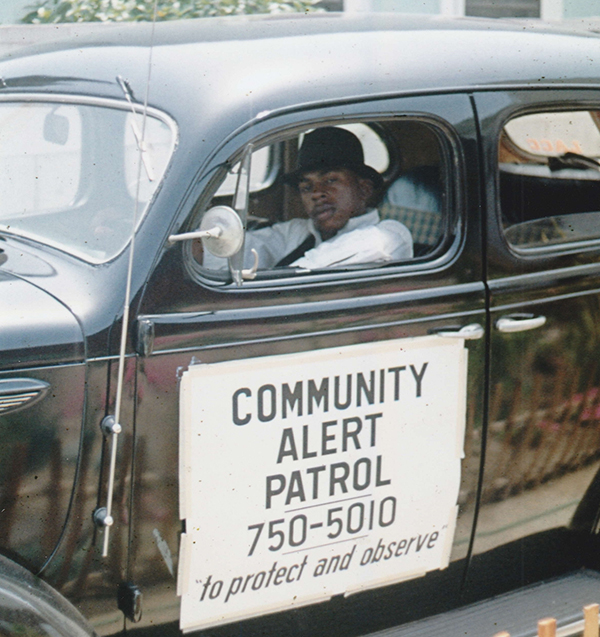‘Black Tax’ 2021
Contrasting treatment
of Black protesters
exposes America’s
true colors yet again
By Janice Hayes Kyser
Contributing Writer
LOS ANGELES — The glaring double standard of how Blacks are treated by law enforcement personnel as opposed to whites was on display again Jan. 6.
White terrorists were treated with kid gloves by Capitol police as they took over the U.S. Capitol Building, as opposed to the way Black Lives Matters protesters were treated last summer when they staged a demonstration outside the Capitol. Then, Capitol Police, dressed in riot gear, used force, pepper spray and tear gas to suppress the crowd, which never threatened the Capitol Building itself.
NEWS ANALYSIS
And while the violence was underway in Washington, a downtown Los Angeles demonstration by supporters of President Donald Trump resulted in the assault of a young Black woman.
The woman, Berlinda Nibo, was violently attacked by a mob of pro-Trump supporters. The incident, which happened just steps away from Los Angeles Police Department headquarters, is being investigated as a hate crime.
Local activist, author and political commentator Earl Ofari Hutchison, says when it comes to race relations in Los Angeles, the glass is half full.
“Blacks can work, eat, live and go to school anywhere our means, status and connections allow, but there are still colossal gaping disparities in homelessness, hunger, health care, poverty and treatment by the police in this city,” Hutchinson said. “We have always been subject to racist attacks.”
To those who suggest that Nibo should have crossed the street or perhaps turned around in her own neighborhood to avoid the Trump protesters who attacked her, civil rights leader Najee Ali, CEO of Project Islamic Hope, had this response.
“We have the right to exist in this city just like white people do,” Ali said. “People are outraged and angry. We have seen the video of this young woman being beaten, pepper sprayed and her wig being pulled off of her head.
“We can’t sleep in our own beds — Breonna Taylor. We can’t go out for a jog — Ahmaud Arbery. And we can’t walk to and from breakfast in our own neighborhoods — Berlinda Nibo — without being attacked by racists.”
Vickie M. Mays, a distinguished professor of psychology at the Fielding School of Public Health at UCLA, says racial hatred is literally making Black people sick. Mays says the fight, flight or freeze mode all too many Blacks find themselves in leads to increased incidences of heart disease, diabetes, alcohol and substance abuse and other conditions that put them in peril.
“The state of hyper vigilance we find ourselves in constantly takes its toll on our mental and physical well-being,” said Mays, who has a PhD in clinical psychology and is considered an expert on racial trauma. “When you think about the kind of year we had with the dual pandemics of COVID-19 and racial violence, it has been tough, really tough. It’s important that we acknowledge and accept the very real stress we are under.”
To cope with the onslaught of trauma, Mays recommends taking a time out to decompress with family and friends or talking to a therapist.
Unfortunately, according to Alison Rose Jefferson, a Los Angeles historian and author of “Living the California Dream: Leisure Sites for African Americans During the Jim Crow Era,” vigilance has always been a way of life for Black people.
“Los Angeles can be deceptive because of the geography,” Jefferson said. “It is spread out so that people of different races and backgrounds are not right on top of each other like in many other major cities. In some ways, the manner in which the city has developed has literally bought us some breathing room when it comes to race relations. However, it doesn’t mean we as Black people don’t have to be vigilant. We have to look out for ourselves. It is clear that white supremacy is alive and well.”
Attorney Christian Contreras, who is with the Justice X Law Group, a civil rights law firm comprised of Black and brown attorneys addressing social justice issues confronting people of color in L.A., says the real travesty is that there is no safe place for a Black woman in Los Angeles in 2021.
“Ms. Nibo had to make a decision whether to walk on the side of the street where there were hostile white Trump protesters or the side of the street where there were armed police,” said Contreras, whose firm has been contacted by Nibo regarding representation, but has not been retained. “The fact that neither side of the street is a safe option is beyond tragic, mind blowing and totally unacceptable.”
Ali agrees.
“L.A. is no different than Mississippi or Alabama,” he said. “There are plenty of white racists here in the land of sunshine and the attack on Ms. Nibo is an ugly reminder of that. We have to stick together, Black, brown, white, Latino, LBGT. We are not each other’s enemy. Our enemy is white supremacy.”











